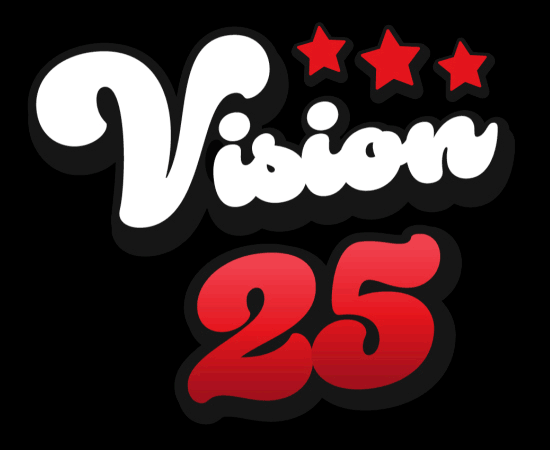3 Reasons MSPs Shouldn’t Pass on AV Work
One of the most hotly discussed topics in the professional Audio Video integration industry is “How do you manage your client’s systems and what is your revenue model for doing so?” AV systems, particularly in the business environment, can be complex and require a significant amount of ongoing maintenance and upkeep to consistently perform to the client’s expected service level. As these systems and equipment have evolved over the last decade to be increasingly connected and dependent on IT for functionality, the amount of monitoring needed has only grown. However, a big portion of the AV Integration industry is still learning how to effectively manage their client’s systems in a systematic and profitable way. MSPs have had the service contract and reoccurring revenue model figured out for years and, very often, already have the internal infrastructure in place to support these types of ongoing client needs. It would seem natural for MSP companies to extend their service offerings to include AV work and support, but there is a surprisingly high percentage of MSP companies that are very reluctant to involve themselves in AV work for the clients. Those that do, are missing out on business growth, improved client satisfaction and a significant revenue stream. I can point to three specific reasons that MSPs who are turning down AV work are making the wrong decision:
-
Nearly all AV equipment used in the corporate or business environment (and the residential world for that matter) is connected to the network and, in many cases, is reliant on connectivity to properly function. Everything from video distribution and power management, to room control and scheduling is happing on, and over the client’s network and AV equipment can cause significant network performance issues if the network infrastructure isn’t set up to properly manage the AV data traffic. The AV hardware is going to be on the network YOU are managing; do you really want to leave the configuration of that hardware up to another company? No one knows your client’s network and systems better than you, so who better to make sure that the AV systems that are installed won’t impact their system up time or your SLA metrics?
-
No longer do AV systems, always require a site visit to solve the smallest problems. Now, tools exist that allow you to manage the AV systems as part of the clients overall network and AV Integrators say that 80% of client AV issues can be resolved via a remotely managed portal or system. Connected AV hardware is now (mostly) remotely accessible and via management platforms, like SnapAV’s OVRC, allow you to configure, troubleshoot and manage that AV equipment in the same manner as your client’s network.
-
If you don’t do the work, the client will find someone else who will and they may end up displacing you as the service provider for the client. End client feedback consistently says that one of the primary factors on selecting service partners is previous experience or an existing relationship with a firm. As a company who is already managing their IT systems, there is a built in level of trust your clients likely have that will often lead them to ask you first about doing any AV work in their business. You’re already the incumbent service provider, why turn away business from an existing client you trust? Your AV vendor partners are absolutely invested in helping you specify and deploy their systems so why not rely on your partners and help grow your business?
For those of you who have been doing AV work for some time and have been reading this post thinking, “Well, duh,” hat tip to you, you’re doing the right thing. We talk with MSP partners every day who exhibit an initial reluctance to jump into doing complex AV systems but, in most cases and with our support, they are able to successfully deploy and manage AV systems for the clients and grow their business.
– Josh Litwack, Director of Commercial Sales @ SnapAV
Meet Lou Ernst, Senior Sales Development Representative
Today we turn the spotlight on Lou Ernst. Lou quickly became a tremendous asset to the team at The 20.
What do you do here at The 20?
I am a Senior SDR here at The 20. My job is to discover, create, qualify and reach out to potential clients for our MSPs in the Marketing Program. My goal is to educate companies of all the benefits to having a managed IT department and putting them in touch with the right MSPs.
Describe The 20 in three words…
Fun, Innovative and the Best!
As a kid, what did you want to be when you grew up?
I wanted to be an astronaut!
What’s the most challenging thing about your job?
The most challenging aspect of my job is probably handling potential clients in every single industry.
What do you consider your greatest achievement?
What do you think is the most important quality necessary for success?
I’d say the most important qualities necessary for success is having integrity, patience and optimism.
What do you like most about The 20?
I love my co-workers and just the environment in general. Every day is different, and there’s just no substitute for that.
What do you like to do in your spare time? / What are your hobbies?
I love to camp and play golf!
Where are you going on your next vacation?
I’ll be heading to Costa Rica.
What’s your top life hack?
I’d say my top life hack is to simply have more fun, and stress less. Slow down and be thankful!
Interested in working with Lou at The 20? We’re hiring! Check out our Careers page for more info.
Meet Lee Mash, Business Development Manager
Today we turn the spotlight on Lee Mash. Lee has quickly become a tremendous asset to the Sales team and The 20.
What do you do here at The 20?
I’m the Business Development Manager, which means I’m in charge of member recruitment. I search for potential MSPs to see if they’re the right fit to join The 20.
Describe The 20 in three words…
Revolutionary, Teamwork, Unique.
As a kid, what did you want to be when you grew up?
I wanted to be an astronaut.
What’s the most challenging thing about your job?
Finding MSPs that REALLY are open to change. Change is difficult, and most people say they’re committed to change — but when it comes down to it, they don’t want to leave their comfort zone. Stepping out of your comfort zone is the only way you’ll grow and excel.
What do you consider your greatest achievement?
Finishing my training and being accepted into the Elite Nahal infantry brigade of Israeli Defense Forces was my greatest life achievement. Our beret march was around 100 miles and I carried almost 100 pounds of gear. Climbing up Masada in full combat gear; carrying the stretcher while watching the sunrise and knowing I finished this trek was breathtaking. A task that I originally thought was impossible, became possible and that’s when I realized YOU can be the greatest barrier to your own success.
What do you think is the most important quality necessary for success?
Self-discipline.
What do you like most about The 20?
The 20 gives every MSP the chance to grow, no matter their size or where they’re at in their business plan. If they have the will and motivation to grow, The 20 enables them to unlock their true potential.
What do you like to do in your spare time? / What are your hobbies?
In my spare time I enjoy working out, playing ice hockey, hanging out with friends, reading, laying on the beach and traveling.
Where are you going on your next vacation?
I am going to Israel, Egypt, and Jordan in May!
What’s your top life hack?
Wake up before sunrise and you’ll be exponentially more productive! I guarantee it!
Interested in working with Lee at The 20? We’re hiring! Check out our Careers page for more info.
This summer, we have welcomed 3 new interns here at The 20!
Alexis, Courtney and Jakob have been a great addition to our team. Here’s a little more about them:

Alexis Williams
Marketing Intern
Major: Digital Retailing and Fashion Merchandising
Minor: Consumer Experience Management
Classification: Senior at the University of North Texas
Describe Yourself: Goofy, Considerate, and Observant
Career Path: Digital Retailing wasn’t my initial choice when it came to deciding on a major. I have always had a passion for fashion, but I realized my skill set was better fit for the digital world. I enjoy creating ideas to promote or increase traction within businesses. I am mostly interested in social media marketing, but I am excited to explore all aspects of Digital Marketing.

Courtney Ford
Graphic Design Intern
Major: Graphic Design
Classification: Senior at Texas Women’s University
Describe Yourself: Curious, Easy-Going, and Reliable
Career Path: I chose to major in graphic design because I was a page designer/editor for my high school newspaper, so that really made me fall in love with designing. I am also a sucker for great product packaging. This internship is great because it allows me to create real collateral for The 20 as well as other companies. I really enjoy making something that people will be able to use, whether for business or just for a laugh on social media. This internship is really helping me understand what goes into the day-to-day life of a designer.

Jakob Field
Sales Intern
Major: Marketing
Minor: Business Management
Classification: Senior at the University of Oklahoma
Describe Yourself: Funny, Laid back, and Practical
Career Path: I’ve always been fascinated by marketing and the dramatic impact it can have on consumer’s choices. The duality of marketing with the vastly different analytical and creatives sides has always seemed like a perfect fit because I have such a strong interest in both. Also, the psychology behind why certain tactics work in certain situations and how to best implement those has always interested me. This Sales Internship with The 20 has given me the opportunity to explore the numerous similarities between marketing and sales and has allowed me to gain real world experience and learn from talented people.
If you happened to miss our blog about the five reasons one should intern in college, written by our very own Talent Acquisition Manager, Camden Rendon — be sure to check it out!
Interested in joining the team? Check out our Careers page for all current openings!

by Dan Astin
The statistics are daunting. A great percentage of SMBs and, in particular, MSPs and other tech services firms will never reach $5,000,000 in gross revenue. As such, growth through careful acquisition of other SMBs or their assets is a great way for MSPs to increase lead gen, sales and scale.
Here are 5 fundamentals — practical keys — to increasing the likelihood of success in pursuing acquisitions:
1) Assets v. Stock
Consider buying assets only. Acquiring assets without assuming liabilities may provide the greatest ROI at the most competitive price. Many times the seller just wants out, and the tribulations that led to the decision to sell are often better left behind.
2) Acquisition Entity
The decision whether to acquire through your existing entity or a NEWCO will depend on a variety of factors, including newly-enacted tax laws. Consult with your financial, legal and tax advisors to be sure you make the most beneficial decision.
3) Due Diligence
The “opportunity inspiration” of the deal often results in a rush to get the deal done. There is no substitute for caution through due diligence in an acquisition. First up, on every deal pursuit, there should be financial and other diligence depending on the nature of the deal. Consult your professionals to assist. Even basic diligence through review of financials and tax returns can help avoid wasted time and acquisition costs when the numbers don’t measure up.
4) Term Sheet
Assuming you get past the diligence stage, work with your professionals to draft a term sheet with the core deal components. Many times, once the parties have term sheet in front of them, one of the parties determines they are not on the same page after all and at the very least disconnects may be easier to work out. Going straight to an APA may be less cost-effective if the deal is not consummated. At the contract stage, parties often become intractable when their deal term expectations are not met.
5) Just Business
Remember that it’s a business deal. Becoming emotionally attached to the thrill of the “great” deal will color judgement and lead to disappointment if the deal does not close — or, worse yet, buyer’s remorse when unbridled enthusiasm wanes after closing and it becomes clear it wasn’t such a great deal.
Dan Astin is a business attorney and consultant with offices in Philadelphia, Wilmington and San Diego. He’s a Managing Partner of Ciardi Ciardi & Astin.





